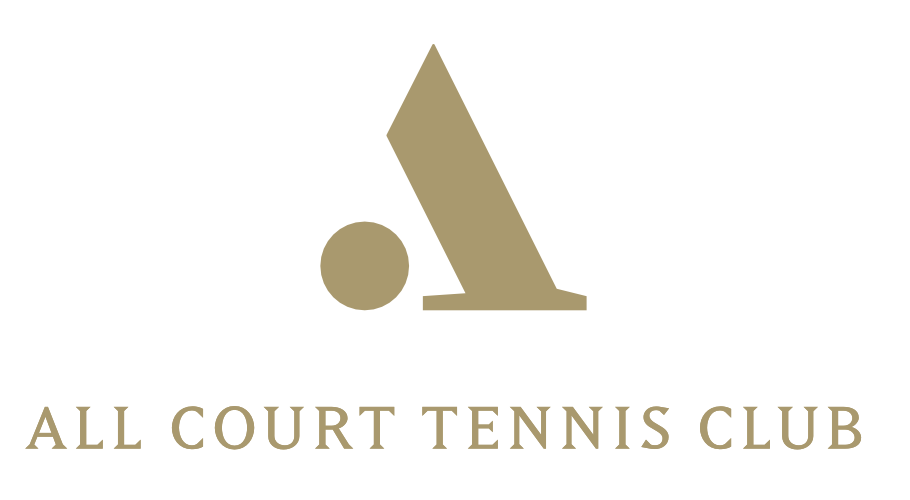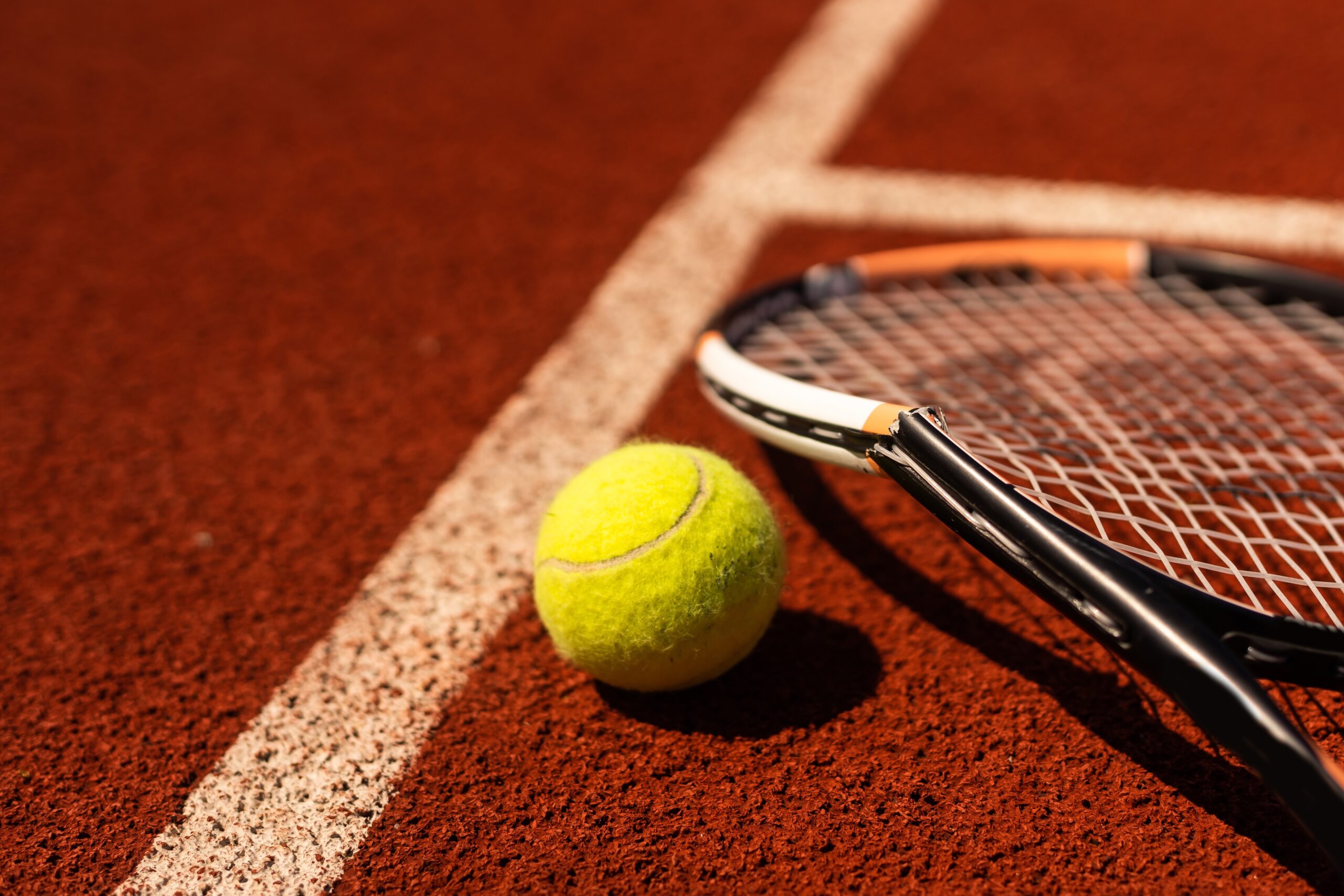Adaptability on Court
Staying adaptable and being agile mentally is important when handling situations on court you do not expect, whether it’s a double fault or a bad call by your opponent. It’s easy to let ego get involved when playing somebody you feel you should beat. Avoid getting consumed by those thoughts through managing moments of frustration. Times where players get too caught up in the result, score, or what other people might be thinking about them is when losing becomes an issue. Yes, thoughts and feelings happen, but don’t fall victim to them.
Re-focusing your thoughts on court is key for optimal performance, and where this lacks, is often where I see players suffer mental blocks. What happens between points is that the mind has time to ponder the negative of the past and anxieties of the future. Nobody has the ability to avoid the natural course of those thoughts entirely, but the most mentally agile players will practice awareness in those moments and use a tool that works best for them in order to re-focus the mind.
When mistakes happen, try to stay curious instead of judgmental. Adaptability is a valuable skill and practicing the adjustment of your tactic will stand to you in times where your aggressive game isn’t working and you need a plan b.
The Trickiest Shot of All
The shot that I see most players struggle with is their serve, which is ironic, because it’s the one shot that we have complete control over. We have a personal expectation to serve well because there is time to think and no anticipation of the ball from your opponent. When we miss our first serves or double fault, there’s a tendency to be self-critical, and in particular, to try harder, to think more, to do things that we typically don’t do.
Many players struggle with their serve and as a result, try to compensate by thinking more about their execution. When players hit a weak first serve, they begin to worry about losing the point and regaining their composure, therefore getting stuck inside their head and losing thought clarity.
Staying present in your body is very important. Having one intention, maybe two at the most is a mindfulness tactic I recommend to my clients. Having a queue, keeping your head up, and not trying too hard is key. A bad serve can really derail your game and when you get stuck in a cycle of not serving well, the rest of your game will likely follow suit. Overall, it is a very finicky stroke and one that requires a lot of practice.
A Winning Mindset
The ideal mindset in tennis is one that prioritises mindset of mastery rather than outcome. Most players are immersed in the past and future because the human brain knows what it wants and what it doesn’t. It wants to win and wants to replicate the rewards experienced in those positive past experiences. Simultaneously, the mind is recalling its past negative experiences of losing and worries of that repeating.
By only having partial control over the eventual outcome, it is important to embrace the mindset of mastery, to become curious, determined and committed to the things we have control over. Approach your play in a way that leads with intention; giving yourself permission to miss, playing on your terms whether that means being aggressive or moving the ball around the court in a new way. There are many things that we actually have full control over, for example, the next move we make on court, our focus, our attitude and managing our response to mistakes.
Practicing a mindset which focuses on mastery rather than outcome invites in a state of very little thinking. Typically, we think quite a lot off the court so I like to tell clients that thinking around 20% is sufficient. In that time you’re making adjustments, visualising targets, evaluating what you know and assessing what should be done differently. These thoughts should become automated and allow you to eventually get into a habit of activating your mental auto-pilot. This allows time between points to stay neutral with your focus, stay present and then allow moments of reset to visualise the next shot.
Where Mental Blocks Appear
I see children as young as 10 where the typical scenario is that players recognise that they are different from their peers in lessons. They start displaying talent and begin playing in competitions. This highlights a notable gap between practice with their peers and competitive match play, which is where they will usually start to feel much tighter. They typically play a little more tentatively in training sessions and then become overly aggressive during matches, this creates a distinct imbalance in their emotional, physical and mental state. This is where a gap between input and output becomes more and more apparent.
When talented players begin underperforming significantly, they may start to seek out mental support. Now, as sports psychology becomes more prominent, more widely exposed and accepted, kids are now asking for mental coaches because they’ve heard that sports superstars like Naomi Osaka, LeBron James, Emma Raducanu, Christiano Ronaldo, Pete Sampras and Roger Federer are all doing so.
Top-level tennis players and athletes are using mental tactics learnt through sports psychology to help them narrow the gap with their opponents. I have found that players are recognising the value of these tools earlier on in their career now and this is why sports psychology is growing quite rapidly.
The Most Common Court Issues
The most common presenting issue among players at every level of the game is feeling too tight and too anxious. When players compete, tightness may only present during very important points or during high-stakes matches.
The default reaction in these high-pressure situations is to hold back, even if they are trying to play more aggressively. Often, players get stuck here where the body just holds back and there is a fear of mistakes or a fear of losing control and wildly missing. The brain gets hijacked in these moments and quickly sends cortisol to the muscles therefore causing significant muscle tension.
Tightness and the subsequent tentative play which follows throws the course of focus off, causing players to lose more points, especially when playing against people they feel they should beat. Anger and negativity are two common emotions that are physiologically triggered by tightness and anxiety which often lead players down a path of frustration and often times, loss.
Mindfulness on Court
Mindfulness is important both on and off the court. On the court, mindfulness can prove to be remarkably effective, and now, more players understand the concept. Acceptance is a huge aspect of mindfulness and arguably the most effective, whether that is through non-judgmental awareness, accepting difficult moments, or accepting adversity. If practiced correctly, mindfulness can become a powerful weapon within technique and strategy on court.

In a mindful state, we allow intervention of our thoughts to help get out of our heads, dropping out of the over-thinking cycle and prohibiting cognitive overload. Moments where mindfulness can be applied are those where we start over-analysing a mistake, worrying about the future, the impact of winning or losing and what other people will think. These are the sort of thoughts that hijack our composure and require mindful intervention.
Mindfulness immediately pulls you out of your head and stops you from being held hostage by your thoughts. It allows you to become more connected to your body and drop into a flow state, a condition where you begin developing less conscious thoughts and become absorbed into the moment and task at hand.
One of my favourite and one of the most popular techniques players use is tapping the bottom of their shoes between points. It signifies being grounded but is also the furthest point of the body from their head. Players analysing and overthinking their technique can be futile and counterproductive, while this technique for many is incredibly effective.
Frustrations on Court
Without question, the biggest frustration for tennis players is the sense that they are not performing to their optimal capability, which causes them to lose to players they feel like they should beat. This gap between who they feel they are as a player and who they want to be all of a sudden becomes apparent and is often compared against talent they have displayed in the past. When players don’t perform at the level they expect or indeed lose to players who they believe are at a lower level, it can be incredibly frustrating.
Interestingly, the lower you go in skill level, the more you will find a focus on the opponent, not liking the person they are or even the way they play. The self-image aspect can get mixed up into that. As you can imagine at pro level, the focus is more on mastery, execution and winning, and because they’re playing for their livelihoods it’s much less about the opponent. The worry at a higher level tends to be about skill execution, and frustration will more commonly appear when players have lost out on a point where they could have applied a skill learnt in training.

